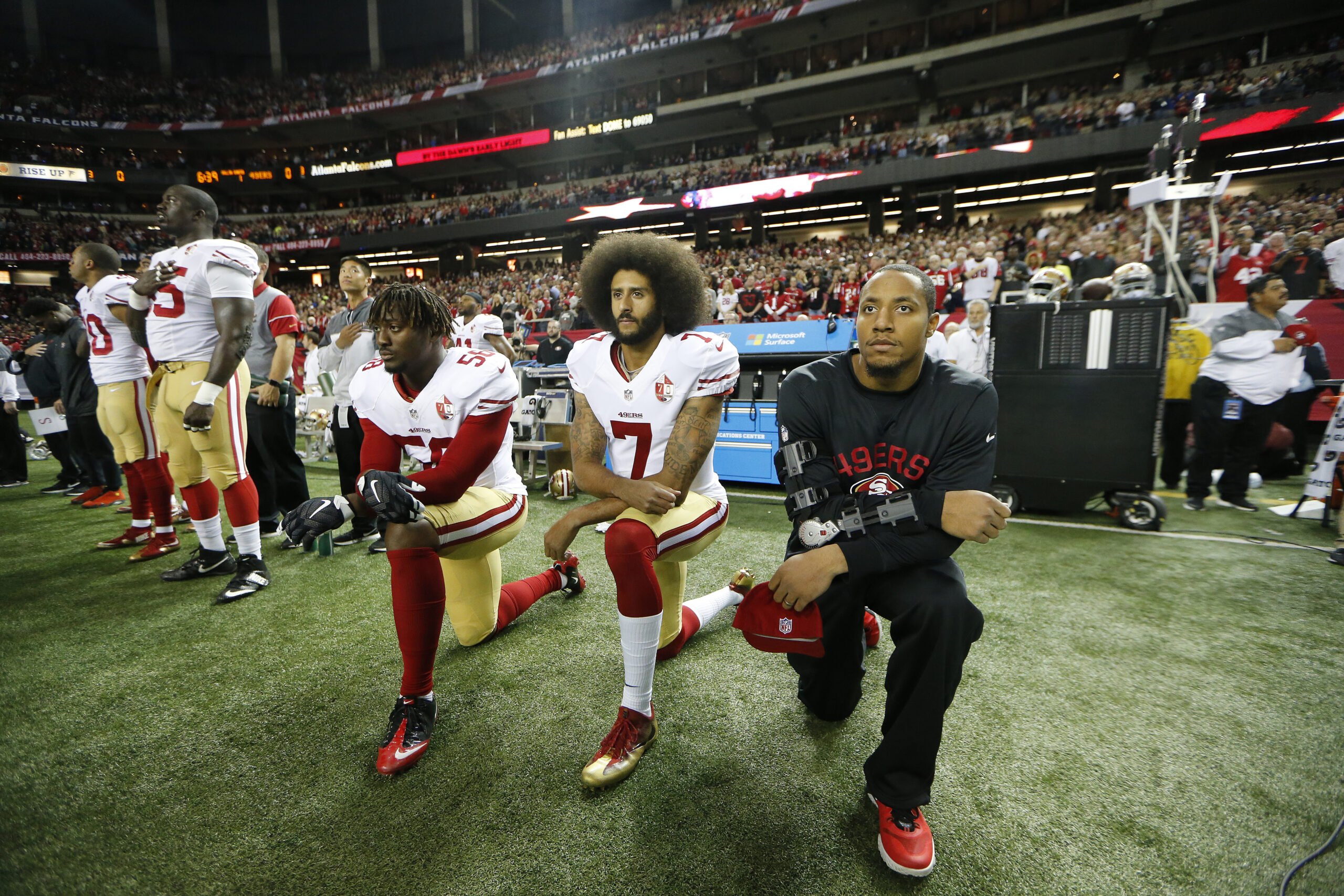Atlanta’s Civil Rights History Could Affect Falcons Anthem Policy Response

San Francisco 49ers quarterback Colin Kaepernick (7) and San Francisco 49ers outside linebacker Eli Harold (58) kneel during the playing of the national anthem before a game against the Atlanta Falcons in December 2016.
John Bazemore / Associated Press
The National Football League will require players to stand and show respect for the flag as part of its new national anthem policy or stay in the locker room.
The rule change comes after dozens of players kneeled or protested last season during the song pre-game. The protests started during the 2016-17 season by then-San Francisco 49ers Quarterback Colin Kaepernick.
Kaepernick started sitting before kneeling during the Star Spangled Banner in response to racial injustice.
Now, teams will be fined if any player does demonstrate on the field but they can set their own policies.
Atlanta’s NFL team, the Falcons, have been quiet in response to the league’s new policy.
Maurice Hobson, an African-American studies professors at Georgia State University, said he thinks people are watching how Atlanta’s team responds to the rules.
“We’re talking about the city that has made its mark around the world by appropriating Dr. King’s dream,” Hobson said. “If Atlanta does not do something it is going to set a particular kind of precedent.”
A few Falcons players kneeled during the National Anthem last year. The Falcons participated in a team-wide demonstration last September after President Donald Trump referred to players who kneeled as “sons of b*tches.”
Daniel Black, an African-American studies professor at Clark Atlanta University and Morehouse, said the Falcons response could carry weight with other teams and fans.
“We’re in the land of King,” Black said. “Atlanta is the land of the Civil Rights movement. I am expecting that the Atlanta Falcons would have a bit of an uproar because it really is about the right to speak one’s mind.”
Hobson, who teaches at GSU, said the new rule has underlying tones of slavery.
“The fact that owners would require grown men to do anything to whereas their God given right according to the U.S. Constitution allows for them to express themselves in the ways in which they want to is absolutely plantation politics playing out at its finest,” he said.
NFL Commissioner Roger Goodell and a number of team owners said the rule change would allow the league to get the focus back to football.
All but one of the league’s 32 owners voted to approve the new policy. The San Francisco 49ers owner Jed York abstained.
Black said the Falcons need to take a strong stand against the new rule.
“I think it’s extremely important that the Atlanta Falcons do something or say something about this including quite frankly Arthur Blank,” he said. “We’re in the land of the Civil Rights movement. And if this doesn’t matter and move people here, I’m not sure where it will.”
Falcons President Rich McKay spoke Wednesday after the new rule approval. He said the team had good discussions on social justice issues last year and he expects that to continue this season.





